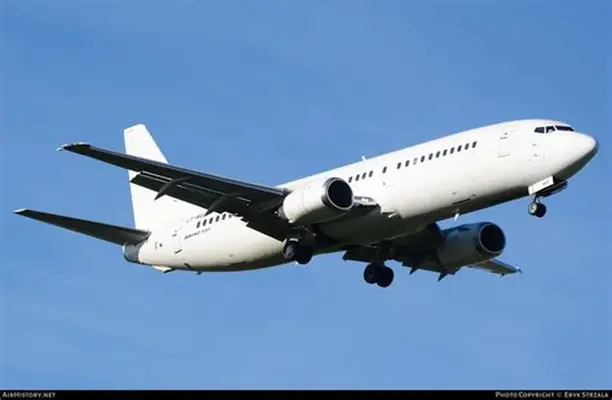By Chiagoziem Abosi
Edited by Sunkanmi Adewunmi
Nigeria’s aviation sector may finally be stepping into a new chapter, one where local airlines don’t have to beg, bargain, or bend just to lease aircraft from foreign companies. This week, the Federal Government revealed plans to establish a Nigerian-owned aircraft leasing firm, a move many experts say could reshape the future of air travel in the country.
The announcement came from the Minister of Aviation and Aerospace Development, Festus Keyamo, during the reception of a newly dry-leased Boeing 737 aircraft delivered to Air Peace at the Murtala Muhammed Airport. According to him, the government is now in advanced talks with global investors to build a leasing company that will prioritize Nigerian airlines and give operators easier access to airplanes.
And honestly? If this works, it might just be the plot twist the aviation industry has been waiting for.
Why This Matters Especially Now
For years, Nigerian airlines have been stuck in a loop high leasing costs, tough payment terms, and a reputation problem that made foreign lessors see them as “high risk.” That’s why many operators struggled to expand their fleets or maintain consistent schedules. Leasing was expensive. Insurance was more complicated. And investors were often skeptical.
But Keyamo’s new push signals something different: a desire for homegrown control.
He explained that the new leasing company will run on a capital pool model, where government and local airlines provide funding. To sweeten the deal for international investors, the FG is also ready to issue sovereign guarantees meaning Nigeria is willing to stand behind the loans.
That’s not small talk. That’s the kind of assurance foreign investors have been begging for.
The New Insurance Backing
Earlier this year, the FG and NAICOM rolled out new insurance regulations that allow local airlines to cede up to 90% of risk under certain conditions. This was designed specifically to strengthen Nigeria’s position in aircraft leasing.
It’s like the country finally decided to clean its room before inviting guests and now the guests are willing to come inside.
What This Means for Local Airlines
If you’ve ever wondered why ticket prices swing from “manageable” to “my chest!” overnight, part of the answer is the cost of leasing planes. When airlines pay more, passengers pay more.
A Nigerian-owned leasing company could:
- Make aircraft more accessible and affordable
- Help local airlines expand their routes
- Improve reliability and cut down on flight delays
- Reduce dependence on foreign lessors
- Make Nigeria a real player in the African aviation market
This could be one of the few moves that actually trickles down to ordinary Nigerians.
But Let’s Be Real, It’s Not Magic
Setting up a leasing company is not beans.
There are real questions:
- Will the capital pool be big enough?
- How transparent will the company be?
- Will airlines repay leases on time?
- Can the government resist the temptation to politicize the operations?
These questions matter, because aviation doesn’t forgive guesswork.
Still, many experts see this plan as long overdue. Calls for a Nigerian aircraft leasing firm have echoed for nearly a decade. Now, with reforms under way, investor interest warming up, and government guarantees on the table, the timing might finally be right.
A Moment of Hope for Nigerian Aviation
For once, the tone in the sector feels different. Less frustration, more anticipation. There’s a sense, even if fragile, that the industry might be entering a season where Nigerian airlines have the tools to stand stronger on their own.
If this plan survives political drama and is executed with real discipline, Nigeria could become a major aviation hub in West Africa. But for now, we watch. We hope. And we hold the government to its promise.
Because at the end of the day, a stronger aviation industry doesn’t just help airlines, it makes life easier, safer, and even cheaper for the people flying through Lagos, Abuja, Port Harcourt, Kano, and everywhere in between.
And that’s a win worth rooting for.








